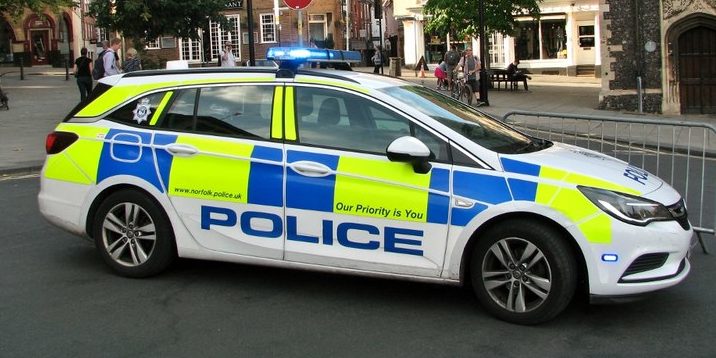University essays reported to police spark debate on UK’s ‘Prevent’ programme
University essays have been flagged up under counter-terrorism measures and been investigated by police, according to a report by The Independent.
The university essays were reported as part of the ‘Prevent’ programme, a UK government scheme encouraging institutions to have “due regard to the need to prevent people from being drawn into terrorism”.
The universities of De Montfort, Wolverhampton and Reading all reported student work to the programme, reigniting the debate around the efficiency and fairness of the scheme.
Work was referred to security at the universities, sparked internal questioning of the student and, in some cases, escalated to police involvement. No further action was taken against any of the cases.
Waqas Tufail, a Criminology professor at Leeds Beckett University, said: “You would not think students’ essays were being policed in a democratic state. In what way can the police be arbiters when it comes to an essay?”
Having researched for Prevent, he added that the programme fosters a “McCarthyite culture” on campus and “is not working” while doing “discernible harm”.
“It really hits home when you think about the impact on academic freedom and general freedom of speech. There hasn’t been quick enough action from the government,” he continued.
“I think the government has a lot to answer for. But we shouldn’t let individual universities off the hook.”
Black Students’ Officer at the National Union of Students (NUS), Fope Olaleye, described the “level of surveillance” has “a censorious and chilling effect on who can engage in educational spaces”, changing the relationship between staff and students to one with the dynamics of “suspects and informants”.
“While everyone must be live to the dangers posed by extremism […] It is ironic that so many academics feel the real threat to free speech comes from the government, when the last Conservative manifesto said free speech needed strengthening in universities,” said Higher Education Policy Institute (HEPI) Director Nick Hillman.
It really hits home when you think about the impact on academic freedom and general freedom of speech
– Dr Waqas Tufail/span>
Universities UK responded that they will “continue to work hard to implement effective approaches to Prevent” that have the support of students and staff without curtailing freedom of expression.
“Institutions are committed to promoting and protecting free speech, provided it is donecwithin the law and balanced with safeguarding responsibilities to all students,” they added.
In an open letter penned in 2015 and signed by various academics, journalists and Students’ Union (SU) officers, the scheme was criticised for “(reinforcing) an ‘us’ and ‘them’ view of the world”.
The letter suggested it would have a “chilling effect on open debate, free speech and political dissent”.
In response to the branding of the scheme as a ‘safeguarding’ measure, it continued that the programme created an “environment in which political change can no longer be discussed openly, and will withdraw to unsupervised spaces”.
This sentiment was reiterated by the UCU General Secretary Dr Jo Grady, who said that the programme “does more harm than good if it closes down debate on contentious topics”.
Both students and academics, she claimed, should “be free to discuss and debate controversial issues without fear of being referred to the authorities”.
In 2016, the University of Warwick saw a protest against the university’s compliance with the programme, with both academics and students beginning to “self-censor” themselves in fear of being reported.
During debate about the programme in parliament in January this year, then-Security Minister Brandon Lewis defended the programme. He said: “Counter-terrorism policing in this country is operationally independent, and that is an important principle.
“The operational independence of our police from Government is integral to our democracy.
“We are clear that the right to peaceful protest is a cornerstone of our just society and an indispensable channel of political and social expression.”

Comments